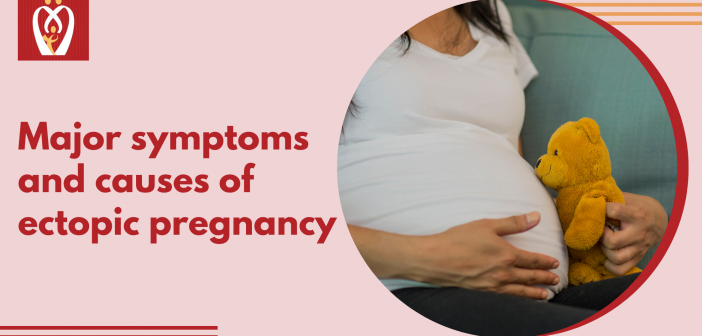A pregnancy that occurs outside the uterus is called an ectopic pregnancy. Fertilized eggs can’t grow if they’re implanted in a structure that can’t handle it. The fallopian tube is a common site for ectopic pregnancies (a pair of structures that connect the ovaries and uterus). Ectopic pregnancies can occur on the ovary or in the abdominal cavity, but this is extremely uncommon.
Pregnant women who suffer from an ectopic fetus are at risk of serious complications if they do not receive immediate treatment.
Causes
When a fertilized egg gets stuck in the fallopian tube on its route to the uterus, it is known as a tubal pregnancy, and it is the most common type of ectopic pregnancy. It’s also possible that hormonal imbalances or improper growth of the fertilized egg are involved.
Risk factors
Some factors that increase your risk of ectopic pregnancy include:
- An ectopic pregnancy from a previous pregnancy. A previous experience with this type of pregnancy raises your chances of having another.
- Bacterial or fungal infections STIs, such as gonorrhea and chlamydia, can induce inflammation in the uterine tubes and other surrounding organs, increasing the risk of an ectopic pregnancy.
- Infertility therapies. Ectopic pregnancies may be more common in women who undergo IVF or comparable therapies, according to some studies. Additionally, infertility may boost your risk.
- Surgery on the fallopian tubes. An ectopic pregnancy can be more likely after surgery to repair a closed or damaged fallopian tube.
- Smoking. The chance of an ectopic pregnancy can be increased if you smoke when you are trying to conceive. The more you smoke, the more dangerous it is to your health.
Symptoms
When an ectopic pregnancy first appears, it might look and feel a lot like a normal pregnancy. However, if you have an ectopic pregnancy, you may also suffer from the following symptoms:
- Vaginal bleeding
- Lower abdominal, pelvic, and lower back pain
- A feeling of lightheadedness or shakiness
The pain and bleeding that may result from a ruptured fallopian tube could be severe enough to trigger further symptoms. They include
- Fainting
- Low blood pressure
- Pain in the shoulder
- Pressure on the rectum
You may experience severe lower abdomen pain if a tube ruptures.
Your GP should be contacted immediately if you discover that you are pregnant and have an IUD (intrauterine device for contraception), or if you have previously had a tubal ligation (tying of the tubes during surgery or at the time of delivery). In these cases, ectopic pregnancies are more common.
Ectopic pregnancies are often misdiagnosed as normal pregnancies.
Ectopic pregnancies are usually discovered during a routine office visit with your GP. First, your GP will confirm that you’re pregnant, and then he or she will search for the ectopic pregnancy. The following are examples of these evaluations:
- Urine test – In order to perform this test, you have to either urinate on a test strip (which usually looks like a stick) or urinate in a cup and have a test strip dipped into your urine sample in your healthcare provider’s office.
- Blood test – Your healthcare provider may test your blood to see how much human chorionic gonadotropin (hCG) you have in your body. HCG is produced during pregnancy. This is also known as your beta-hCG level.
- An ultrasound exam – Sound waves are used to create images of your body’s internal structures during an ultrasound. Ultrasounds are frequently used during pregnancy. Using this test, your GP will be able to see where the fertilized egg has been implanted.
You’ll have a treatment plan in place after your GP confirms that you’re pregnant and determines the location of the fertilized egg. An ectopic pregnancy is a life-threatening situation that requires immediate attention.
In the event of a ruptured fallopian tube, quick medical attention in an emergency room is required. As a result, there is no time to make an appointment in these situations.
Treatment
Ectopic pregnancies can be treated in a variety of ways. Methotrexate, a prescription medicine, may be recommended by your GP in order to slow the pregnancy’s growth. Your GP will administer methotrexate to you by injection. You’ll need to see your GP regularly to monitor your hCG levels, but this approach is less intrusive than surgery.
Surgery may be necessary for more serious situations. Fallopian tube rupture or the possibility of rupture necessitates surgical intervention. This is a life-saving procedure performed in the midst of a medical emergency. Laparoscopic surgery is the preferred method (through several small incisions instead of one bigger cut). Surgeons can either remove the entire fallopian tube with the egg remaining inside, or they can try to remove the egg from the fallopian tube if that is possible.
Talk to your GP about your plans for future pregnancies. As a team, you may devise a strategy and brainstorm strategies to mitigate any potential risks.
